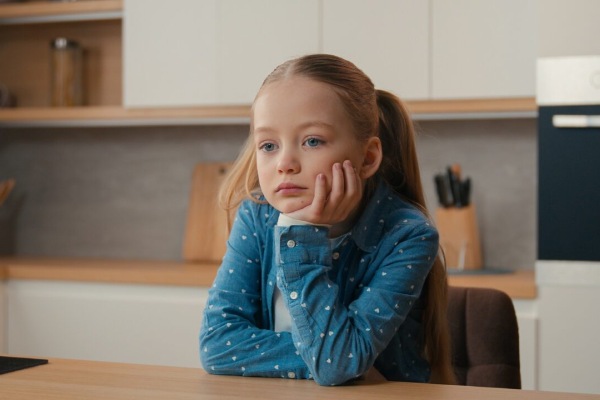
The Emotional Rollercoaster of Childhood Epilepsy: Helping Children Cope with Seizures
Having a child with epilepsy can be an emotional rollercoaster for parents and caregivers alike. From the fear of watching your child experience a seizure to dealing with the emotional impact of epilepsy, managing this condition in children can seem overwhelming. But there is hope: by understanding more about epilepsy, its symptoms, coping strategies, and treatments, you can help provide your child—and yourself—peace of mind even on difficult days. In this blog post, we’ll explore what childhood epilepsy looks like, the common fears associated with it, and tips to overcome them together as a family.
Causes of Epilepsy in Children
Epilepsy is a neurological disorder that affects people of all ages, including children. It is characterized by the occurrence of seizures, which result from abnormal activity in the brain. Currently, there is no known cure for epilepsy, but with proper treatment, many children can achieve good seizure control.
There are many different causes of seizures in teenagers and children, including:
- Genetic factors
- Brain injuries
- Infections
- Developmental disorders
In some cases, there may be no obvious cause. It is important for parents to work closely with their child’s doctor to determine the underlying cause of their epilepsy and develop a personalized treatment plan for helping children with seizures.
Common Symptoms of Epilepsy in Children
While the symptoms of epilepsy can vary from person-to-person, there are some common signs that parents should be aware of, especially when it comes to seizures in children.
- Sudden and unexplained jerking movements
- Staring spells
- Loss of consciousness or awareness
- Confusion
- Sleep disturbances
Emotional, Psychological, and Social Impacts of Epilepsy on Children
Epilepsy affects not only the physical well-being of children but it also has emotional, psychological, and social impacts on children.
Emotional Responses to Epilepsy
- Shock and Denial: Upon first diagnosis, it is common for children and their families to experience shock and denial as they try to come to terms with the condition.
- Fear of Seizures: Fear of seizures can also be overwhelming for children, leading to anxiety and a sense of helplessness.
- Grief and Loss: For children, the realization of what they may lose and how their life and relationships may change due to epilepsy can become a source of grief and loss.
- Acceptance: With time, many children are able to reach a place of acceptance, aided by supportive care and resources.
Psychological Impact of Epilepsy on Children
- Anxiety: Many children with epilepsy experience high levels of anxiety which can result in feelings of stress and depression.
- Low Self-Esteem: Children may become withdrawn or struggle to socialize with their peers, causing low self-esteem.
- Behavioural Changes: With epileptic seizures, many children may experience behavioural changes such as becoming more withdrawn or irritable.
Social and Familial Implications of Epilepsy
- Impact on Family Dynamics: Parents and siblings may need to adjust to a new way of living, as seizures and medications become a regular part of their lives.
- Bullying in School: Unfortunately, children with epilepsy are also at a higher risk of being bullied or ostracized at school.
- Stigmatization or Discrimination in Society:Stigma and discrimination can also be an issue. This can cause further stress and anxiety for both the child and their family.
Coping Mechanisms for Children with Epilepsy
Coping with epilepsy can be difficult for children, but there are several techniques that can help make it easier.
Education and Understanding
Having a basic understanding of epilepsy is an important first step for both children and parents when it comes to managing the condition. It is important to educate yourself on the different types of epileptic seizures, treatments, and safety precautions that can be taken to help prevent seizures. Additionally, it is beneficial for children to understand their own condition so that they can manage it more effectively.
Meditation/Mind Relaxation Techniques
Meditation and other mind relaxation techniques can be effective tools for helping children with seizures. These techniques can help reduce stress levels and provide a sense of calmness, which may help reduce the frequency or severity of seizures. Additionally, meditation can also be used as a tool to help children focus on positive thoughts and feelings instead of focusing on negative aspects associated with their condition.
Cognitive Behavioral Therapy (CBT)
Cognitive behavioural therapy (CBT) is another effective coping mechanism for children with epilepsy. This type of therapy helps children identify and change unhelpful thinking patterns as well as behaviours that may be contributing to their condition. CBT also teaches coping skills such as problem-solving, relaxation techniques, and mindfulness which can help them manage their condition more effectively.
Support Groups
Support groups are an excellent resource for both parents and children with epilepsy. These groups provide emotional support from others who are going through similar experiences as well as practical advice on how to manage the condition better. Additionally, these groups may also offer educational resources on epilepsy as well as access to professionals who specialize in treating this condition. At Family Matters Centre, our therapists for teens and children can help your child deal with the emotional impact of epilepsy through the following support groups:
How Can Family Matters Centre Help Children Cope with Epilepsy?
Being diagnosed with epilepsy can be a scary and overwhelming experience for both children and their families. At Family Matters Centre, we understand the challenges that come with the condition and strive to provide a safe and supportive environment for children to cope with it.
Our team of experienced child therapists offer a range of services, from one-on-one therapy to support groups, that aim to help children build resilience, manage their emotions, and feel empowered in their treatment journey. We also work closely with families to provide education and resources that help them understand epilepsy, its triggers, and treatment options. With our compassionate care and evidence-based practices, we are committed to helping children with epilepsy thrive.
To learn more about our child counselling for epilepsy in the Burlington, Hamilton, or Oakville area, call us today at (905) 466-8023 or fill out our contact form to request an appointment.

by Shari Markovich
Shari is a Child Therapist who has worked with children and adolescents for more than 20 years. She uses a variety of counselling modalities, including Theraplay®, Cognitive Behavioural Therapy (CBT), and Family Systems. She is motivated to work with children and parents so families can function in healthy and supportive ways.



